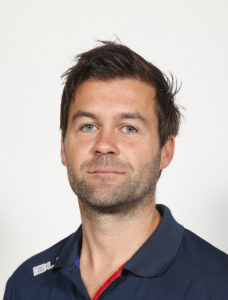Professor Sam Robertson
Professor of Sports Analytics, Victoria University
Field of expertise: Sports Analytics and Human Performance
In the time you have been working in your field, what impossible things have become possible?
That a human would run a sub-2 hr marathon.
That advancements in computation would enable near-real time analysis of video.
That virtual and augmented reality would become a viable tool for improving human performance.
That a human would safely free-fall from space (Felix Baumgartner).
What impossible thing(s) are you working towards making possible, and why?
We are trying to identify how new heights of human and sports performance can be reached through various scientific areas working together. For instance, how can improved ways of physical training and new technologies be harnessed to take human performance to never before seen levels. This not only has relevance for improving sporting prowess, but also how we can explore deep sea and deep space.

What is an example of an impossible thing others in your field are currently working to make possible?
For the moment at least, we do not have a good way to measure many psychological and social aspects of sporting performance. For instance, how important is the communication of athletes in team sport to success? How do aspects such as social interactions, teamwork and cohesion relate to teams having success? Simply, why do champion teams so often beat a team of champions in sports all over the world? We know that just looking at performance data doesn’t explain everything about why teams win in sport – so this area is the next frontier for sports performance research.
In your field are there any things that you predict will remain impossible, and why?
There are limits to what humans can do, without major changes to their physical being. Humans can only run so fast or jump so high. Bio-engineering, implants and artificial body parts could change all of that. Sports will be faced with fundamental questions around their very nature and structure – when does a human stop being a human? We have already faced such questions with situations like Oscar Pistorius (‘Bladerunner’) and his performance-enhancing prosthetic legs, but it will continue to be an ethical and societal question for us to face in future.
In your opinion what formerly impossible and now possible thing in your field has made or is making the largest contribution to human or planetary flourishing?
We are still working this out – many human developments in technology will have the ability to improve our health as well as sports performance, but right now technology on the whole is not helping to increase human physical activity – more so the contrary. We need to continue to find ways that sport can improve quality of life for humans in all walks of life around the world.
More information:
The Future of Sports Report by http://futureof.org

